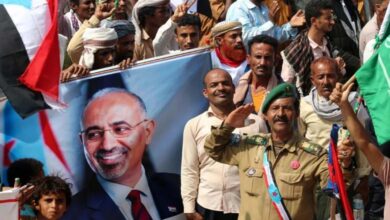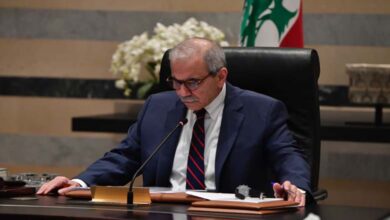Lebanon caught between the vacancy crisis and extension
Five religious scholars challenge the extension decision for Lebanon's Mufti, alleging violations of the law, amid efforts to dissuade them

Close associates of Lebanon‘s Mufti, Abdel-Latif Derian, seek to maintain the extension of his term by blocking attempts to challenge the controversial decision. Critics consider it a violation of the law. while the country faces a crisis of extension amidst the presidential vacancy. with no signs of resolution to its political, economic, and social crises.
Five scholars have submitted a review to the State Shura Council with the aim of challenging the decision to extend Derian’s term. citing procedural flaws in the process. Meanwhile, representatives from Dar al-Fatwa are in contact with them. attempting to persuade them to reconsider. according to the Lebanese newspaper “Al-Akhbar.”
Sharia judge Hamam al-Sha’ar. one of the challengers, stated. ‘The request was submitted after obtaining approval from Derian in a recent meeting with Sharia judges.’ He explained that ‘the flaw is not on the part of the Mufti. who had previously issued a statement rejecting the extension. Instead, it is from some beneficiaries who included the decision in an ill-considered manner .and did not follow legal procedures.’
Last September, Lebanon’s Higher Islamic Shiite Council extended Derian’s term for 5 years. even though .Dar al-Fatwa had announced before the decision that. the Mufti unequivocally rejected the proposed amendment to Article 6 of the legislative decree extending his term.
The vacancy crisis in the leadership of the army. security forces, and Dar al-Fatwa pushed towards considering extension as a solution to end this crisis. However, extending more than one vacant position has opened. the door to political disputes and conditions.
-
Multi-front conflict or de-escalation… Scenarios of escalating tension between Hezbollah and Lebanon
This whirlwind revolves around the presidential vacancy crisis, which is the only solution to the country’s crises. The inability to address one vacancy without the other has led to negotiations between politically. and ideologically conflicting Lebanese factions, governed by a sectarian quota system that automatically generates conflict over power .and state interests rather than a conflict to protect the country and ensure its supreme interests.
In February of the previous year, the issue of extending the term for the General Director of Lebanese Security. Abbas Ibrahim, was raised shortly before reaching the retirement age. and the end of his term. Efforts by Hezbollah and its allies to keep him in his position failed. as parliamentary blocs refused to participate in a legislative session on this matter. They considered that he had one task during the vacancy period in the presidency. which was to elect a new president for the country. Colonel Elias Beiseri was subsequently appointed as the acting director of security.
The issue of extending the term for the army commander, Joseph Aoun, as his term is set to end on January 10 next year. or appointing a replacement for him. is also a focal point of conflict among Lebanese factions. Concerns arise about a vacancy in the leadership of the military institution. especially as the security situation is delicate amid military escalation between Israel and Hezbollah on the borders. There is a possibility of expanding the limited confrontations into a war.
Observers agree that filling the vacancies in the administration is essential and urgent. This issue cannot be definitively resolved unless. the country emerges from the maze of the presidential vacancy by electing a new president for the republic.












